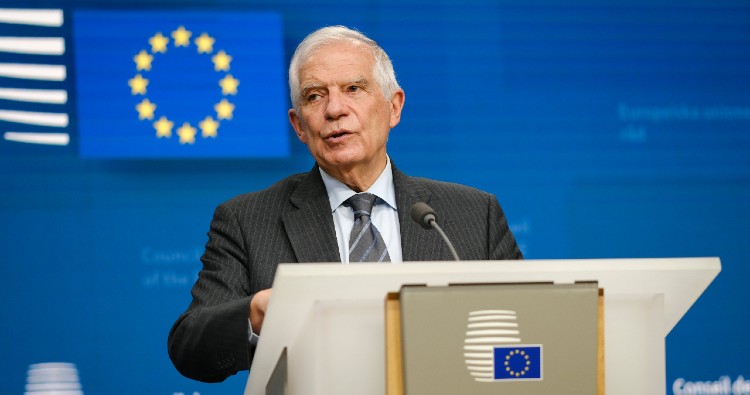EU “deeply regrets” Georgian Parliament’s decision to override President’s veto on transparency law - High Representative Borrell

Borrell pointed out that the EU and its member states were “considering all options” to react to the development in Georgia. Photo via Josep Borrell/twitter
Josep Borrell, the High Representative of the European Union for Foreign Affairs and Security Policy, on Tuesday said the EU “deeply regrets” the decision of the Georgian Parliament to override President Salome Zourabichvili’s veto on the domestic law on transparency of foreign influence and “to disregard the Venice Commission's detailed legal arguments leading to a clear recommendation to repeal this law”.
The EU has stressed repeatedly that the law adopted by the Georgian Parliament goes against EU core principles and values. Its enactment leads to a backsliding on at least three out of the nine steps set out in the Commission's recommendation for candidate status endorsed by EU leaders and will negatively impact Georgia's EU path”, Borrell noted.
In his statement, the EU High Representative claimed “there has been so far insufficient political attention mobilised” to progress “substantially” on the nine steps and urged the Georgian authorities to “reverse this trend and to return firmly on the EU path”.
There is still time to change the dynamics – but a strong commitment by the governing authorities is needed. [...] We continue to stand with the Georgian people and recognise the choice of the overwhelming majority of them for a European future for their country”, he added.
Borrell pointed out that the EU and its member states were “considering all options” to react to the development in Georgia.
The Georgian Parliament today overrode the President's veto on the transparency law with 84 votes against four, on the backdrop of ongoing public street protests and criticism by the country’s international partners.
The law calls for the registration of non-commercial legal entities and media outlets in the country as “pursuing the interests of a foreign power” if they derive more than 20 percent of their funding from abroad.
 Tweet
Tweet  Share
Share